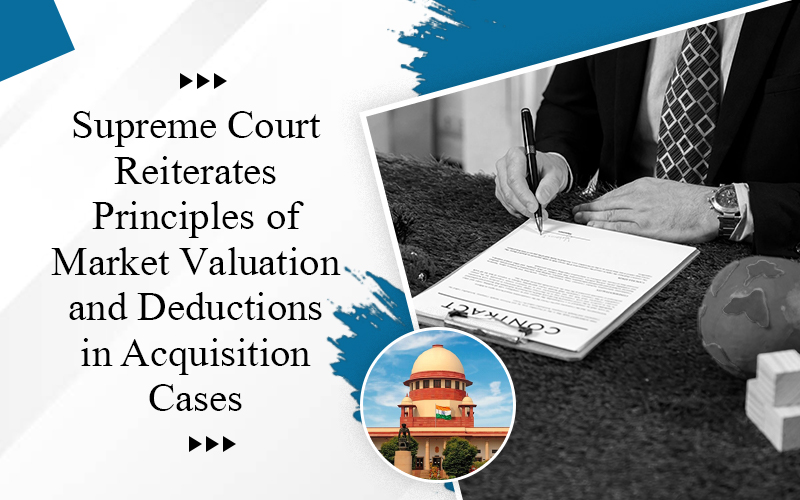Shivamma (Dead) by LRs v. Karnataka Housing Board & Ors.
Civil Appeal No. 11794 of 2025
(J.B. Pardiwala. J)
The Supreme Court examined the scope of Section 5 of the Limitation Act, 1963, and the principles governing condonation of delay. The appeal arose from a Karnataka High Court order dated 21st March 2017, which condoned a staggering delay of 3966 days in filing a second appeal by the Karnataka Housing Board (KHB). The core issues before the Court were the interpretation of the phrase “within such period” in Section 5, the scope of appellate interference with discretionary orders condoning delay, and whether the High Court was justified in exercising discretion in the present case.
The litigation traced its origin to a parcel of land bearing, admeasuring 9 acres 13 guntas, originally owned by the appellant Shivamma’s father. Following his death, disputes among heirs led to a partition suit. During its pendency, one Gurulingappa Patil allegedly donated 4 acres of this land to the Government of Karnataka, pursuant to which KHB took possession in 1979 and developed a housing colony.
Later, by a compromise decree dated 03 April 1989, Shivamma became the absolute owner of the entire land, including the disputed 4 acres. Since possession was not restored, she filed O.S. No. 1100 of 1989 seeking a declaration of title and possession against KHB. The trial court dismissed the suit in 1997. On appeal (R.A. No. 405/2004), the First Appellate Court in 2006 decreed the suit in her favour, declaring her ownership and awarding compensation instead of possession, as substantial construction had already occurred on the land.
No steps were taken by KHB to challenge this decree until Shivamma initiated execution proceedings in 2011. Even then, KHB remained inactive until 2017, when it filed a second appeal before the High Court, accompanied by an application seeking condonation of 3966 days’ delay. The High Court condoned the delay, citing public interest and substantial justice. Aggrieved, Shivamma (by her legal heirs) approached the Supreme Court.
For the appellant, it was argued that KHB had shown no bona fide explanation for its inaction. The delay was caused by the gross negligence and lethargy of its officers. The Supreme Court stressed that “sufficient cause” requires diligence, and mere state inaction cannot justify condonation. It was further submitted that discretionary condonation cannot be routine when the delay is inordinate and unexplained.
For the respondents (KHB), it was argued that courts must adopt a liberal approach when substantial justice is at stake, especially in cases involving the State. They contend that technicalities of limitation must give way to public interest. They further argued that the High Court had exercised discretion judiciously, which should not ordinarily be interfered with on appeal. KHB also submitted that disciplinary action had been taken against negligent officers, showing the lapse was institutional rather than deliberate.
The Court identified three principal issues:
- What is the import of the expression “within such period” under Section 5 of the Limitation Act?
- Under what circumstances can appellate courts interfere with discretionary orders of condonation?
- Whether the High Court was justified in condoning the delay of 3966 days in the present case?
The court undertook a detailed textual and contextual interpretation of Section 5. The Court clarified that the expression “within such period” refers to the prescribed period of limitation for filing an appeal or application, and “sufficient cause” must relate to the entire period of default, not just parts of it.
On the meaning of “sufficient cause,” the Court reiterated that the length of delay is not decisive, but the bona fide conduct of the applicant is. While courts must balance technical considerations with substantial justice, “largesse for State lethargy” cannot be extended endlessly.
The Court stressed that State instrumentalities cannot hide behind bureaucratic inefficiency. Public interest suffers when housing boards or authorities sit idle for years, allowing uncertainty to prevail. Judicial discretion to condone delay is not unbridled; it must be exercised based on cogent explanation and bona fide reasons. Appellate interference is justified if such discretion is exercised arbitrarily or mechanically.
Applying these principles, the Court found that the High Court erred in condoning the delay. KHB had failed to offer any credible explanation for its prolonged inaction despite being aware of the execution proceedings since 2011. The reason for the negligence by officers was deemed insufficient. The Court emphasized that government litigation cannot be pursued casually, and condonation cannot become a matter of course merely because public funds or projects are involved.
The Supreme Court allowed the appeal, set aside the High Court’s order condoning the delay, and held that the second appeal filed by KHB was barred by limitation. The Court affirmed the First Appellate Court’s decree in favour of Shivamma, thereby securing her entitlement to compensation.




